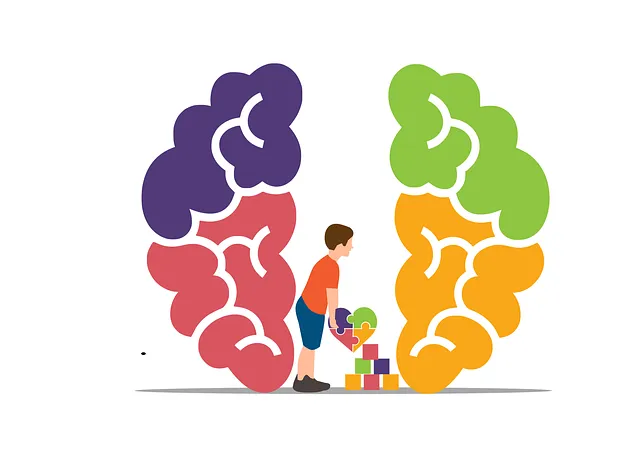Understanding mental health policies, modeled after successful programs at Kaiser Permanente mental health centers in Boulder (as reviewed), is key for advocates aiming to improve community wellness. By identifying gaps and opportunities through policy analysis, advocates can push for accessible and affordable Mental Wellness Coaching Programs and Stress Management Workshops within organizations. This advocacy promotes mental health literacy, reduces stigma, and equips individuals with tools to overcome challenges, as demonstrated by Kaiser Permanente's holistic approaches. Effective policies, like those highlighted in the Boulder reviews, involving integrated care, early intervention, community engagement, and education can transform mental healthcare accessibility and outcomes.
Mental health policy analysis and advocacy are crucial components in fostering well-being and transforming communities. This comprehensive article explores these aspects through diverse lenses, starting with a foundational understanding of mental health policies. We present a case study on Kaiser Permanente Boulder’s mental health services, analyzing their impact on community well-being. Additionally, we offer strategies for effective advocacy, drawing insights from real-world examples, including Kaiser Permanente mental health center reviews in Boulder.
- Understanding Mental Health Policy: A Foundation for Advocacy
- Kaiser Permanente Boulder: A Case Study on Mental Health Services
- Analyzing the Impact of Mental Health Policies on Community Well-being
- Strategies for Effective Mental Health Advocacy and Change
Understanding Mental Health Policy: A Foundation for Advocacy

Understanding Mental Health Policy serves as a foundational step for advocates aiming to drive meaningful change in community wellness. It involves delving into the intricate web of government regulations, healthcare practices, and social services that collectively shape access to mental health support. By examining existing policies, such as those offered by renowned organizations like Kaiser Permanente mental health centers in Boulder, advocates can identify gaps and opportunities for improvement. For instance, reviews of these centers often highlight the effectiveness of their comprehensive programs, including Social Skills Training and Mental Wellness Coaching, in fostering holistic recovery.
This knowledge allows advocates to push for policy developments that prioritize accessible and affordable Mental Wellness Coaching Programs and Stress Management Workshops within organizations. By advocating for such initiatives, they contribute to a broader goal of enhancing mental health literacy, reducing stigma, and ensuring individuals have the necessary tools to navigate life’s challenges. Ultimately, effective advocacy is rooted in understanding the intricate landscape of mental health policy, enabling stakeholders to drive positive transformations in community mental wellness.
Kaiser Permanente Boulder: A Case Study on Mental Health Services

Kaiser Permanente Boulder stands as a notable example of an organization dedicated to improving mental health services. This mental health center reviews and evaluates various aspects of care, focusing on Stress Reduction Methods, Communication Strategies, and Empathy Building Strategies. By integrating these approaches, Kaiser Permanente aims to create a supportive environment that fosters recovery and well-being among its patients.
The center’s innovative practices involve tailored therapy sessions, peer support groups, and community outreach programs. These initiatives not only address individual mental health concerns but also promote a culture of open dialogue and understanding. Patient feedback and success stories highlight the positive impact of these strategies, underscoring the importance of comprehensive mental health care in today’s fast-paced world.
Analyzing the Impact of Mental Health Policies on Community Well-being

Mental health policies play a pivotal role in shaping community well-being, and their impact is far-reaching. By implementing evidence-based strategies, governments can significantly improve access to mental healthcare services, reduce stigma, and promote overall mental wellness. For instance, initiatives focused on early intervention and prevention have proven effective in mitigating the burden of mental health disorders. These policies often involve collaborations between healthcare providers, schools, and community organizations, ensuring a holistic approach to support individuals at risk.
The success of such programs is evident in places like Boulder, where the Kaiser Permanente mental health center reviews highlight positive outcomes associated with comprehensive policy implementation. These reviews underscore the importance of integrated care models that combine medical treatment with social and emotional support. Moreover, initiatives promoting self-care practices and mental wellness podcast series production can empower individuals to take charge of their mental health. Additionally, risk assessment tools for mental health professionals ensure safe and effective practice, fostering a supportive environment for both practitioners and clients.
Strategies for Effective Mental Health Advocacy and Change

Effective mental health advocacy requires a multi-faceted approach to drive meaningful change. One powerful strategy is to leverage the power of community engagement and education. By organizing awareness campaigns, workshops, and support groups, advocates can foster an environment where mental health is prioritized. The Kaiser Permanente mental health center reviews in Boulder highlight successful models where collaborative efforts between healthcare providers, community leaders, and individuals with lived experiences have led to improved access to care and reduced stigma.
Additionally, integrating evidence-based practices into advocacy efforts can significantly impact policy changes. Techniques such as Social Skills Training and Mindfulness Meditation have shown promise in depression prevention and management. By presenting research-backed data on their effectiveness, advocates can persuade policymakers to allocate resources towards programs that promote mental well-being. These strategies, combined with a strong voice for those affected, are essential tools to navigate the complex landscape of mental health policy and drive positive transformations.
Mental health policy analysis and advocacy are vital components in fostering community well-being. As evidenced by the case study of Kaiser Permanente Boulder, implementing comprehensive mental health services can significantly impact a community’s overall health. By understanding the foundations of mental health policy and employing effective advocacy strategies, we can drive positive change. The analysis of mental health policies reveals their profound effect on society, underscoring the need for continuous evaluation and improvement. In light of this, individuals, organizations, and policymakers must collaborate to ensure accessible and quality mental healthcare, as exemplified by Kaiser Permanente Boulder’s successful model, while navigating the complex landscape of mental health services. Search for “Kaiser Permanente mental health center reviews Boulder” to gain insights from real experiences and inform advocacy efforts.






